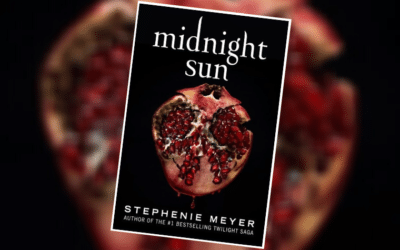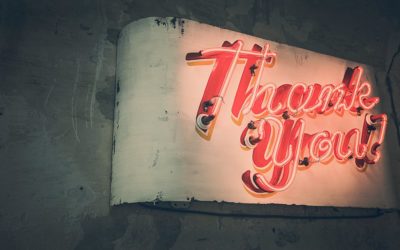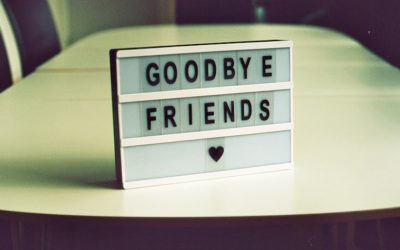Ok, let’s.
I love the Outlander series. I would not have introduced them to the rest of the girls here at That’s Normal if I didn’t think them worth SO MUCH of our time over the last three years. But I did. And I don’t regret it one bit. Because Jamie Fraser is still the ultimate and Outlander would still make an awesome young adult fanfiction.
But because we talk about Outlander so much (Top Ten Moments, Hangoutlander, Snaplander, live-tweeting, Blurtlander and more), we often get accused of too much negativity. Truth is, we’ve actually talked down other people’s negativity MANY MANY MANY times. Still we get backlash. Can we really be fans if we think Mary Hawkins was annoying or that much of what we saw in France was unnecessary?
Yes, yes we can. You can be a fan of something and still criticize it. And if anything ever needed some valid criticism, it was this season of Outlander. Because in a couple of major ways, and none of them having to do with the books, it failed.
What is this season about?
Real quick: give me season 2’s elevator pitch. What is the central tension? Most will say that Jamie and Claire are trying to stop the Battle of Culloden from happening. And you’d be right. They bring it up in the first episode, and it becomes the entire purpose of the first half of the season, and ostensibly the latter half as well.
And yet. The very first interaction we have this season involving Claire and Mr. Unnamed Motorist gives us the end of that story: Culloden happens, the British win, history (ie Jamie and Claire’s “future”) remains unchanged.
So that central tension? Is completely slack. We KNOW the outcome at the outset. It makes for a dissonant viewing experience. Take for instance one fact of Jamie and Claire’s characters – their intelligence. Every time they plot a new scheme: to make Charles angry at Louise, to thwart the rebellion’s finances through the French Minister, to circumvent the armies through diversionary tactics … we, the viewers, are aware of their impending and ultimate failure. It makes buffoonery out of what should be valid and incisive attempts to stay disaster. Instead of believing our hero and heroine to be resourceful, smart and skilled, they look impotent and silly.
Imagine watching Lord of the Rings for three movies if you knew from the get-go that Sauron was gonna get the ring and destroy the Shire. Frodo no longer looks heroic; he looks insane. Who can root for the hero in a quest when you know he or she is doomed to fail? Even worse, how can they root for themselves when they barely believe they will succeed? They’re constantly second guessing themselves. How demoralizing. How … BORING.
But that’s what we were treated to this season. Impotent main characters who are trying to change the future in convoluted ways without really and truly believing that they actually can.
What does this season answer?
If this season was about stopping the Jacobite rebellion, then the main question the season had to answer was: Can they change the future? And in more ways than one this question comes to bear. Inasmuch as Claire wants to change the outcome of Culloden, she wants NOT to change the Randall progeny.
It felt discordant for Claire to not understand her own influence on future events while attempting to thwart a major historical and political event while ALSO trying NOT to affect the ancestry of her former-future husband. The question that the Frasers pose to one another in episode one – can we change the future – is never answered except that THE VIEWER KNOWS THAT THEY DON’T. It’s so convoluted. They never answer the question for themselves, they are constantly asking it, they work at cross purposes against it, and yet the viewer knows the answer the whole time. How frustrating. How … BORING.
Where does this season lead?
The Battle of Culloden hangs over each episode like the shadow of a mountain that the characters were forced to climb, only never reach it. I haven’t done an official count, but I would love to know how many times the word, “Culloden” was used this season and per episode. Everything was leading up to this major conflict of the Jacobite rebellion.
But we never saw it. Not a glimpse. No redcoats across the moor. No canon. No highland charge. No meeting of the clans. Not a whiff. We all know Chekhov’s Gun. No object, no setting, no character should be wasted. The efficiency of writing means that we are never bored because EVERY LITTLE THING matters. (Writers that understand this do it so well that their shows become absolute phenomenons: Breaking Bad, The Wire, Mad Men.)
How does it work on the flip side when the ONE THING THAT SEEMS TO MATTER THE MOST, in the end, matters none. What if we aren’t just shown the gun in Act I; what if all the characters talk about is the gun; what if the gun is hanging over their heads the entire play? And what if it still never fires? How futile. How … BORING.
This is the part of the post where I ask you all to put your pitchforks away, and say the following: I don’t hate this show. The things I love about it are varied. The music. The cast. The setting. The female perspective. If you don’t believe me, read my review of Je Suis Prest, one of the best episodes of the season.
I’m not nitpicking the acting, the individual plot-lines or scenes, the pacing, the cinematography or even the directing. Although I do think that sometimes some of those things didn’t work; I don’t think that the production is sub-par, crappy or even 100% boring. I simply think that the main narrative arc was, and that that created a poor story-telling perspective and ruined the entire season’s effectiveness.
I’m not here to offer solutions. The season is the season. Will I watch it again? Probably not. If I want a Jamie Fraser fix, I will pick up the novels. But I will ask one more question.
What could have been different?
What could have kept a 13-episode season of television based on some of my favorite novels from generally boring me? I don’t have a definitive answer. But here are some theories:
A linear narrative arc: The Jacobite rebellion IS Jamie and Claire’s focus during Dragonfly in Amber, so that can and should remain the same, but show it to us as it unfolds. Don’t give away the ending before it begins, and don’t shortchange the drama at the end. Retain the tension for the viewer that’s inherent for our characters.
A deeper mystery: This is an adaptation of a work that oftentimes feels more like a direct dramatization. Despite a lack of whiskey-colored eyes, waterweed euphemisms and carved initials, the truth is that the show runners often stay too close to the books. Give me Diana’s dialogue any day, but don’t be afraid to work in new points of view, side-plots and “off-book” action. Remember Frankfiction from season 1? That worked so well. Give me mystery. Show me what Dougal’s been doing to further the cause. Let me see what the Comte is planning with Raymond. Give me Randall’s state of mind after Versailles. Take us deeper into the world, instead of shallower into the novel.
An emotional center: If the plot is meandering, or futile or unworkable, fine. But never forget that the central hook to this series is ALWAYS Jamie and Claire’s relationship. An over-arching exploration of how the events that surround them deepen their love, their connection and their ultimate separation could have been the narrative umbrella we would have been ecstatic to see shade the season. I could buy this crazy plot to stop the rebellion (even if they don’t just KILL PRINCE CHARLES IN THE FIRST EPISODE) if underlying it all, at every moment, was how it affected their love for each other.
What about season 3?
Well … here’s hoping the focus of season 3 is less vignettes of singular, dramatic events that occur in the book, and is more a cohesive narrative that focuses on JAMIE AND CLAIRE. Voyager is my favorite novel of the series, and there is a LOT that happens. So much happens to Jamie and Claire separately that forming a season around the relationship between two characters who are not geographically or temporally together sounds daunting, if not impossible. But I think it can be done.
After all, from the moment that Jamie sent Claire through the stones, they’ve been trying to piece their lives back together, to survive, to make a life in light of their separation. And when they are reunited, they are still trying to make a life, trying to survive, trying to piece their lives back together. How does Jamie go on post Culloden, without Claire? How does Claire go on in America, without Jamie? How do they survive loneliness? How does she survive traveling back? How does he survive prison? How do we go on? How do we survive this? That’s a theme for you.





